第5章
Maitre Penautier had a great desire to succeed the Sieur of Mennevillette, who was receiver of the clergy, and this office was worth nearly 60,000 livres.Penautier knew that Mennevillette was retiring in favour of his chief clerk, Messire Pierre Hannyvel, Sieur de Saint-Laurent, and he had taken all the necessary, steps for buying the place over his head: the Sieur de Saint-Laurent, with the full support of the clergy, obtained the reversion for nothing--a thing that never happened before.Penautier then offered him 40,000crowns to go halves, but Saint-Laurent refused.Their relations, however, were not broken off, and they continued to meet.Penautier was considered such a lucky fellow that it was generally expected he would somehow or other get some day the post he coveted so highly.
People who had no faith in the mysteries of alchemy declared that Sainte-Croix and Penautier did business together.
Now, when the period for mourning was over, the relations of the marquise and Sainte-Croix were as open and public as before: the two brothers d'Aubray expostulated with her by the medium of an older sister who was in a Carmelite nunnery, and the marquise perceived that her father had on his death bequeathed the care and supervision of her to her brothers.Thus her first crime had been all but in vain: she had wanted to get rid of her father's rebukes and to gain his fortune; as a fact the fortune was diminished by reason of her elder brothers, and she had scarcely enough to pay her debts; while the rebukes were renewed from the mouths of her brothers, one of whom, being civil lieutenant, had the power to separate her again from her lover.This must be prevented.Lachaussee left the service of Sainte-Croix, and by a contrivance of the marquise was installed three months later as servant of the elder brother, who lived with the civil lieutenant.The poison to be used on this occasion was not so swift as the one taken by M.d'Aubray so violent a death happening so soon in the same family might arouse suspicion.Experiments were tried once more, not on animals--for their different organisation might put the poisoner's science in the wrong--but as before upon human subjects; as before, a 'corpus vili' was taken.The marquise had the reputation of a pious and charitable lady; seldom did she fail to relieve the poor who appealed: more than this, she took part in the work of those devoted women who are pledged to the service of the sick, and she walked the hospitals and presented wine and other medicaments.No one was surprised when she appeared in her ordinary way at l'Hotel-Dieu.This time she brought biscuits and cakes for the convalescent patients, her gifts being, as usual, gratefully received.A month later she paid another visit, and inquired after certain patients in whom she was particularly interested: since the last time she came they had suffered a relapse--the malady had changed in nature, and had shown graver symptoms.It was a kind of deadly fatigue, killing them by a slows strange decay.She asked questions of the doctors but could learn nothing: this malady was unknown to them, and defied all the resources of their art.
A fortnight later she returned.Some of the sick people were dead, others still alive, but desperately ill; living skeletons, all that seemed left of them was sight, speech, and breath.At the end of two months they were all dead, and the physicians had been as much at a loss over the post-mortems as over the treatment of the dying.
Experiments of this kind were reassuring; so Lachaussee had orders to carry out his instructions.One day the civil lieutenant rang his bell, and Lachaussee, who served the councillor, as we said before, came up for orders.He found the lieutenant at work with his secretary, Couste what he wanted was a glass of wine and water.In a moment Lachaussee brought it in.The lieutenant put the glass to his lips, but at the first sip pushed it away, crying, "What have you brought, you wretch? I believe you want to poison me." Then handing the glass to his secretary, he added, "Look at it, Couste: what is this stuff?" The secretary put a few drops into a coffee-spoon, lifting it to his nose and then to his mouth: the drink had the smell and taste of vitriol.Meanwhile Lachaussee went up to the secretary and told him he knew what it must be: one of the councillor's valets had taken a dose of medicine that morning, and without noticing he must have brought the very glass his companion had used.Saying this, he took the glass from the secretary's hand, put it to his lips, pretending to taste it himself, and then said he had no doubt it was so, for he recognised the smell.He then threw the wine into the fireplace.
As the lieutenant had not drunk enough to be upset by it, he soon forgot this incident and the suspicions that had been aroused at the moment in his mind.Sainte-Croix and the marquise perceived that they had made a false step, and at the risk of involving several people in their plan for vengeance, they decided on the employment of other means.Three months passed without any favourable occasion presenting itself; at last, on one of the early days of April 1670, the lieutenant took his brother to his country place, Villequoy, in Beauce, to spend the Easter vacation.Lachaussee was with his master, and received his instructions at the moment of departure.